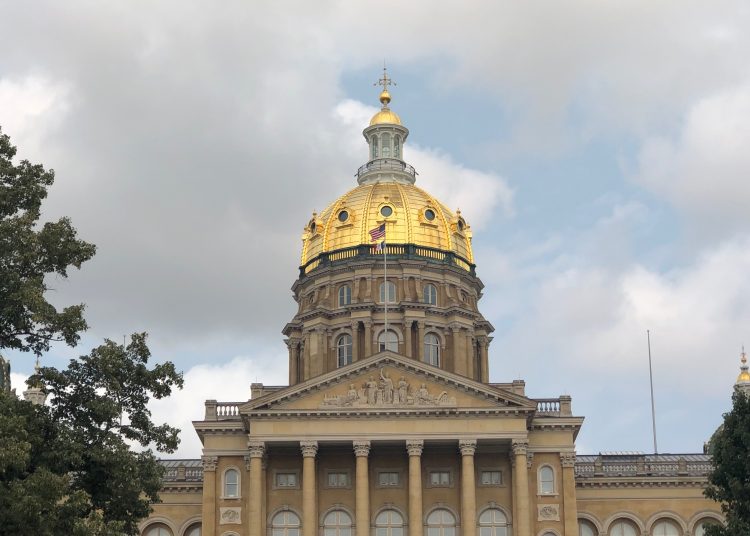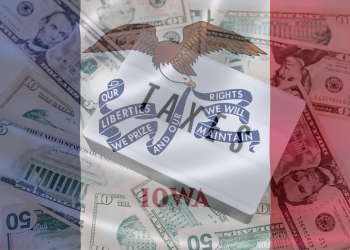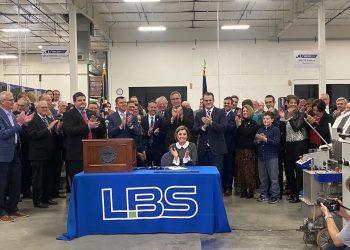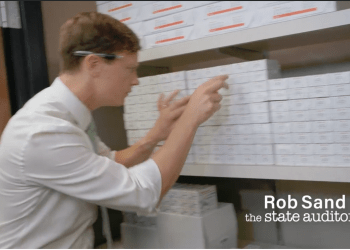“Today’s legislation ushers in a new era of growth and opportunity in Iowa,” said Governor Kim Reynolds when signing the 2021 tax reform bill into law. “But we are not done yet. Next year, I’ll be proposing additional income tax cuts as we continue to make Iowa the most attractive place in America to open a business, raise a family, and start a career, stated Governor Reynolds. Iowa was one of 11 states that have passed tax reform bills this year because of strong fiscal health. Other states, such as North Carolina, are currently considering passing additional tax reforms. Over the last several years, Iowa has made progress in enacting pro-growth tax reform, but more work is needed.
Iowa’s tax climate matters because it impacts not only the earnings of hard-working Iowans, but also determines how competitive and attractive the economy will be in comparison to other states. Recently the American Legislative Exchange Council (ALEC) released the 14th annual Rich States, Poor States: The ALEC-Laffer State Economic Competitiveness Index. In that report, Iowa’s ranking for economic outlook fell from 27 in 2020 to 33 in 2021. One reason for Iowa’s decline in the rankings is that other states are working to reduce their tax rates.
Iowa cannot become complacent as it is competing with 49 other states for both jobs and people. The recent census data demonstrates that states that have no income tax or states that have income tax rates that are low are gaining population.
A crucial component of the 2021 tax reform law, besides phasing-out the inheritance tax, was eliminating the income tax triggers that were put in place in 2018. The top rate will fall to 6.5 percent in 2023, and the individual income tax brackets will condense from nine to four brackets with a bottom rate of 4.4 percent.
This year Iowa’s corporate tax rate was lowered from 12 percent, the highest in the nation, to 8.9 percent, tying us with Minnesota. In comparison, Nebraska passed a corporate income tax cut this year which will gradually lower its rate to 6.84 percent.
In 2022, the Iowa legislature will have an opportunity to build on previous tax reform. Priority should be placed on lowering the individual and corporate income tax and addressing high property taxes.
Before lowering income tax rates, policymakers will need to address spending. It is imperative that Iowa legislature continues to practice fiscal conservatism through sound budgeting. Governor Reynolds and the Republican-led legislature deserve credit for conservative budgeting.
Currently, Iowa is expected to have over a $500 million surplus. In addition, there is plenty of money available for a rainy day, including a combined $817.9 million in the Cash Reserve fund and the Economic Emergency fund and $316.4 million in the Taxpayer Relief fund.
Even heading into the pandemic, Iowa’s fiscal house was in strong order thanks to prudent budgeting. As the legislative session began, Iowa had a budget surplus, and the reserves were full.
Lowering income tax rates requires continued fiscal conservatism and following conservative budgeting. In addition to keeping spending levels low, policymakers should also examine Iowa’s numerous tax credits and incentives. Lower-income tax rates are far better than relying on a tax code dominated by credits and incentives that benefit select special interests.
Governor Reynolds has even stated that the ultimate goal is to eliminate Iowa’s income tax. Eliminating the income tax is a worthy policy goal, but states such as Utah, North Carolina, and Indiana have enacted pro-growth tax reforms without eliminating their income tax. Iowa’s goal should be to continuously lower tax rates.
Lower tax rates may take time, but policymakers should consider several policy tools such as revenue triggers, phased-in rate reductions, eliminating wasteful tax credits and incentives, base-broadening of the sales tax, among others, as measures to help lower rates. Regarding triggers, policymakers need to be careful not to repeat the mistake of 2018, which created unnecessarily barriers to lowering rates. The goal is to lower rates and not create roadblocks.
Finally, legislators have an opportunity to address Iowa’s high property taxes. Iowans are increasingly frustrated about high property taxes. High property taxes are not only burdensome and harmful for the taxpayer, but they also deter economic growth. Thankfully, a solution exists that will benefit all property taxpayers in Iowa.
This year Kansas and Nebraska both passed laws modeled after Utah’s Truth-in-Taxation law. Utah’s law is considered the most taxpayer-friendly property tax law in the nation, making it the gold standard for reform. Utah’s Truth-in-Taxation law is revenue–based, which means as valuations increase, property tax rates decrease. The Truth-in-Taxation law guarantees that each taxing entity receives the same property tax revenues as the previous year, including new growth. This prevents local governments from getting a windfall because valuations have increased.
Through the Truth-in-Taxation process, local governments must justify why they want to increase taxes for additional spending. A crucial aspect of Utah’s law is a direct notification requirement, where notices are sent to taxpayers, providing information on the proposed tax increase and how it will impact their tax bill. It also includes the date, time, location of the Truth-in-Taxation budget hearing. Kansas is already showing success as numerous local taxing authorities are not increasing tax rates.
The most challenging barrier to tax reform will be the need for policymakers to say “no” to the numerous special interests arguing for new or additional spending. Whether it is state income taxes or local property taxes, spending is the leading driver of high tax rates.
The only possibility that could prevent further tax reform in Iowa is poor policies being enacted by the federal government that might trigger an economic downturn. Since the start of 2020, the debt has increased by $5.2 trillion. President Joe Biden has called for $6 trillion in new spending and massive tax hikes that will hinder growth, kill the economic recovery, and add trillions more in debt. President Biden’s tax and spend agenda is creating storm clouds on the horizon as many Americans worry about rising inflation and a national debt that is approaching $30 trillion.
Governor Reynolds and the legislature have demonstrated that fiscal conservatism is working, and Iowa’s economy is growing, and our fiscal house remains strong. Iowa, in comparison to high tax and spend states such as New York, Illinois, and California, among others demonstrate that a state cannot spend its way to prosperity.
Navigating future tax reform will not be easy, but Iowa cannot afford to become complacent and fall behind as other states become more competitive by enacting pro-growth tax reforms. The goal of the 2022 legislative session should be to place Iowa taxpayers first by enacting individual and corporate tax rate reductions and finally solving the problem of high property taxes with a Utah-style Truth-in-Taxation measure.















